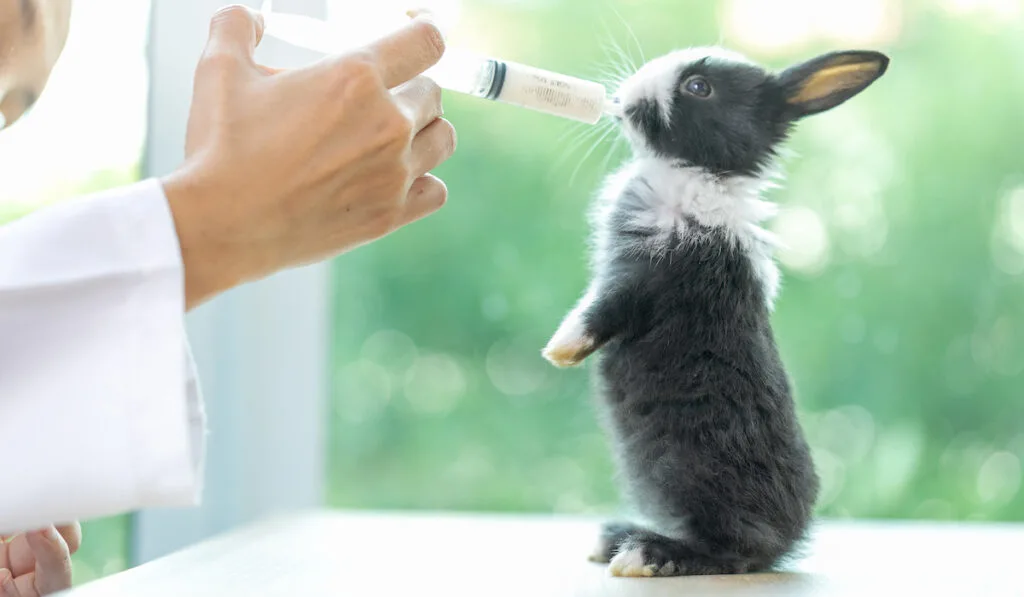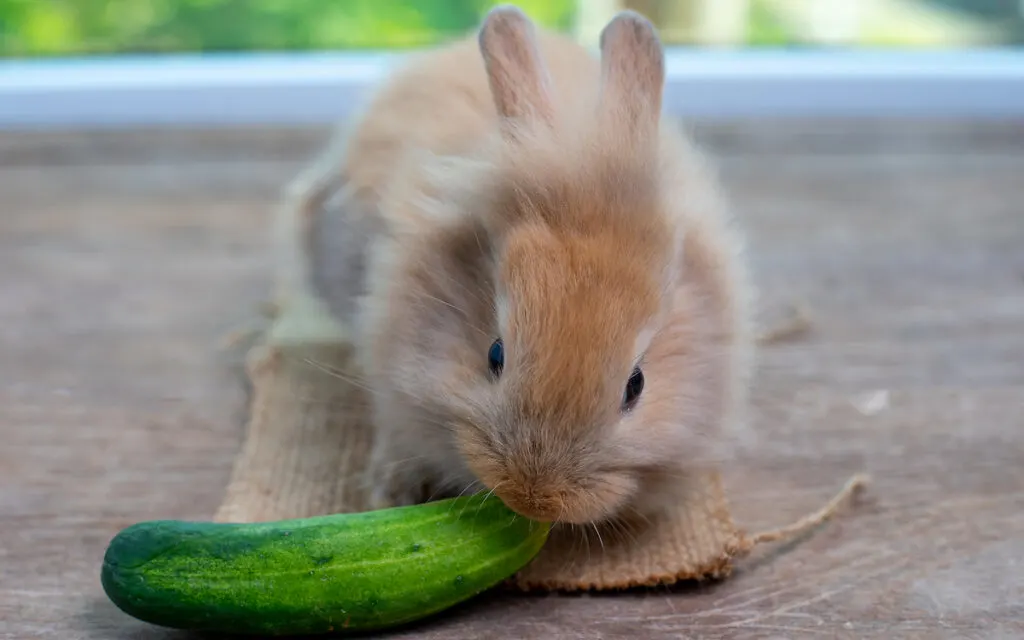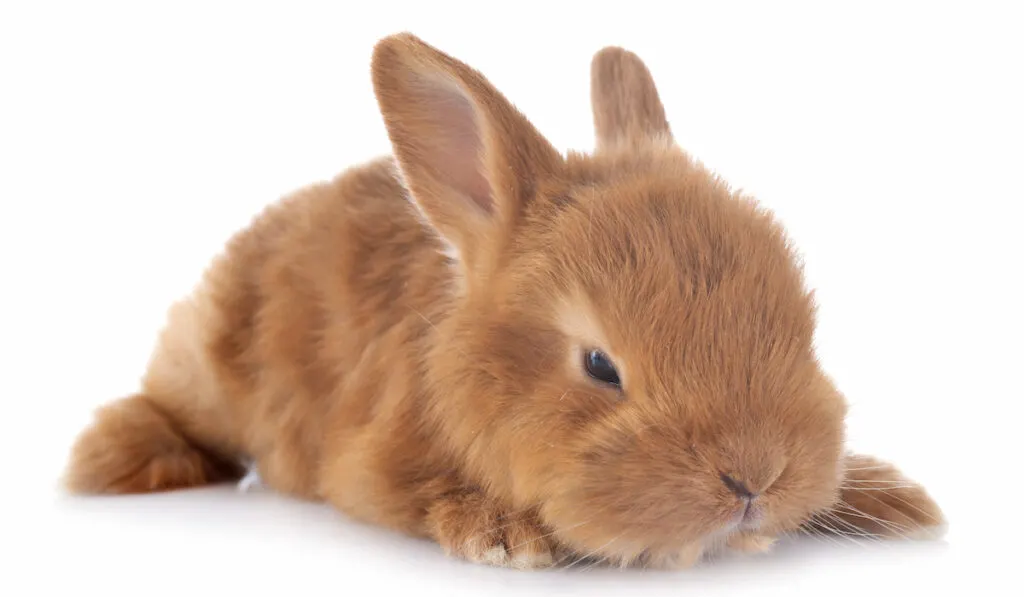Like many other mammalian babies, baby rabbits need milk to survive at birth. They can’t survive without milk. But what happens when the mother rabbit is not on hand to feed the baby rabbit? When the mother is absent, baby rabbits can survive on other types of milk but only a few types.
So can baby rabbits drink cow milk? No, it is not advisable to feed baby rabbits with cow milk.
Baby rabbits should not be fed cow milk. Rabbits have delicate stomachs and cannot vomit. Cow milk contains high levels of substances that cannot be digested by rabbits. These substances can become toxic in the stomach of the rabbits and since rabbits cannot vomit, they become sick or die.

Due to the sensitivity of their stomachs, you have to be very careful while feeding baby rabbits. There are some things you should know before you start feeding them. These things are discussed thoroughly in the rest of this article.
Table of Contents
What Types of Milk Is Best for Baby Rabbits
By now you know not to feed your baby rabbit with cow milk. The presence of hormones, lactose, drugs, and pus in cow milk spells danger for baby rabbits. But if they cannot drink cow milk, what type of milk can they drink?
The best milk for baby rabbits is the special formula called Kitten Milk Replacer (KMR). KMR contains whey protein, probiotics, vitamins, prebiotics, fat, and carbohydrates.
These ingredients are present in similar quantities like natural rabbit milk. KMR basically mimics the milk from mother rabbits.
KMR usually comes in powder form. You dissolve this powder in warm water and stir until it becomes like milk.
Unlike cow milk, KMR can easily be digested by baby rabbits.
Apart from KMR, another type of milk that you can feed your baby rabbit is goat milk. But you must be cautious with goat milk. There are many goat species and the content of their milk may vary significantly. Many experts recommend milk from Meyenburg goats over other types of goat milk.
Wild rabbits would tolerate goat milk more than domestic rabbits. So, if you have domestic rabbits, KMR is the best for them.
Goat milk contains less lactose, protein, and fat than cow milk. Also, goats are not treated with hormones in the same way cows are. These are the reasons goat milk is easier to digest for rabbits and why it is more tolerable.
Feeding a Baby Rabbit
Baby rabbits cannot be fed arbitrarily because of their sensitive stomach. The volume of feed to give them and the frequency of feeding are limited. Rabbits require infrequent feeding with small volumes of feed.
If you try to feed a baby rabbit more times than you should or with more volume of milk than you should, the rabbit may die.
At birth, feeding them 2 – 2.5 ml twice daily is recommended but this should be increased every week until feeding stops. Baby rabbits should never be fed more than twice a day.
Apart from feeding volume and frequency, you must pay attention to the feeding posture. Baby rabbits should be fed while they are in an upright position. Feeding them in other positions may lead to choking and that can be fatal.
You should get a syringe, a special feeding bottle for rabbits, or a dropper to feed them. Ensure that these items are sterilized/disinfected before you use them. With any of these feeding apparatus, you can feed the rabbit slowly. Rushing the feeding process can cause the rabbit to choke.
Recommended Feeding Volume
At different ages, these are the volume of milk recommended per feeding for baby rabbits:
| Age | Volume of Milk for Each Feeding |
| 0 – 7 days | 2 – 2.5 ml |
| 1 – 2 weeks | 5 – 7 ml |
| 2 – 3 weeks | 7 – 13 ml |
| 3 – 6 weeks | 13 – 15 ml |
How to Know If the Baby Is Still Young Enough to Be Drinking Milk
For about 3 weeks, baby rabbits consume only milk. But between week 3 and week 5, most baby rabbits would have started eating some solid vegetables alongside their milk. Milk is essential at this point because it eases the transition.

Solid food will introduce new microorganisms into the stomach of the bunnies. Knowing how sensitive their stomachs are, these microorganisms can be harmful to them. But with milk, there would be no harm because the nutrients help the bunnies adjust to the emerging flora.
Some bunnies stop yearning for milk between 6 – 8 weeks. But for those who still thirst for milk by the 8th week, you may start to wean them. You can do this by diluting the milk with clean water bit by bit until they no longer thirst for milk.
What You Should Do If You Find Baby Rabbits Without Their Mother
If you ever come across a nest of baby rabbits without a mother, your first instinct should not be to pick them up or take them home. In many cases, the little bunnies are not orphaned. Their mothers leave them in the nest as a way to protect them.
Mother rabbits build their nests in places they consider to be safe. They feed their babies once or twice daily. Then they leave the babies in the nest for as long as 23 hours. They do this knowing the babies can survive on the high-calorie content of their milk.

The mothers can outrun predators with ease. But the babies would be helpless. By staying away from the babies for the most part of the day, the babies have a higher chance of survival.
So, when you see baby rabbits alone in a baby nest leave them until you are sure that they are truly orphaned.
If you see the following signs, then the baby rabbits are most likely orphaned:
- Wrinkled and cold skin
- Blue-tinted skin
- Shrunken stomach
If you see these signs, you should contact a wildlife center. But if these signs are absent, you may check back after a day to be sure that they are not orphaned.
Cow milk is toxic to baby rabbits and should not be given to them under any circumstance. If the mother rabbit is unavailable to feed the babies, Kitten Milk Replacer (KMR) and goat milk are the best alternatives. These types of milk are non-toxic and they contain nutrients that can be digested by baby rabbits.
Resources
The following sources were used in this article:
